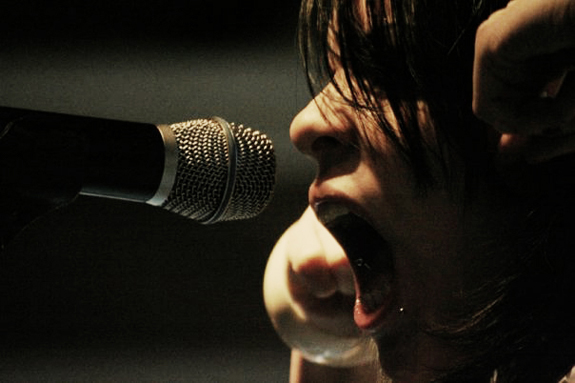90s Pop Music Was Really, Really Depressing
Scientists found that pop music has grown more depressing with time
/https://tf-cmsv2-smithsonianmag-media.s3.amazonaws.com/filer/2012082712500708_27_2012_depressing-singers.jpg)

Photo: Ana Rodríguez Baños
Between Oasis, Alanis Morissette, Nirvana, No Doubt, Boyz II Men, and Sarah McLachlan, 90s pop music hits took a strong turn towards the depressing. And, with Mariah Carey, Cher, Madonna, Whitney Houston, Sheryl Crow, Sinead O’Connor and Britney Spears, it was heavy on female leads, especially when compared to previous decades.
As we’ve previously discussed, scientists have recently found that pop music is growing louder and louder with time. And, as you might have noticed, pop songs are all sort of starting to sound the same.
Now, in a new study, says the Research Digest blog of the British Psychological Society,
Glenn Schellenberg and Christian von Scheve have confirmed what many suspected – pop music over the last five decades has grown progressively more sad-sounding and emotionally ambiguous.
To come to this conclusion, the scientists looked at a song’s tempo, or the speed of its beat. They also measured whether a pop hit was kicked off by major or minor chords.
Happy sounding songs are typically of fast tempo in major mode, whilst sad songs are slow and in minor. Songs can also be emotionally ambiguous, having a tempo that’s fast in minor, or vice versa.
In all, they found that slow, minor-chorded sad songs have increased in prevalence of the past half century, with slow songs peaking in popularity in the 1990s. The researchers, trying to guess what has lead this shift, suggest that the modern music connoisseur wants to “demonstrate distinctiveness and sophistication in their taste.” The thinking goes that it’s hard to be taken seriously when you’re jumping and twirling and bobbing your head to bubble-gum pop.
More from Smithsonian.com:
Science Proves: Pop Music Has Actually Gotten Worse
‘We eat, breathe and dream music. We’re a bunch of nerds here’
Hit-Making Hot Pants
/https://tf-cmsv2-smithsonianmag-media.s3.amazonaws.com/accounts/headshot/smartnews-colin-schultz-240.jpg)
/https://tf-cmsv2-smithsonianmag-media.s3.amazonaws.com/accounts/headshot/smartnews-colin-schultz-240.jpg)